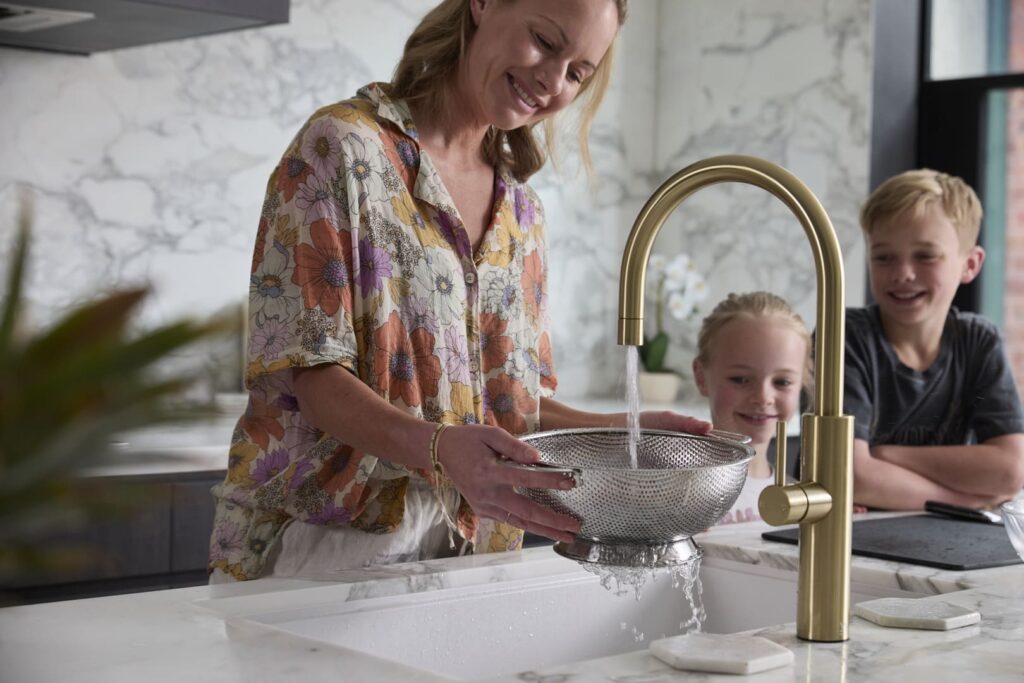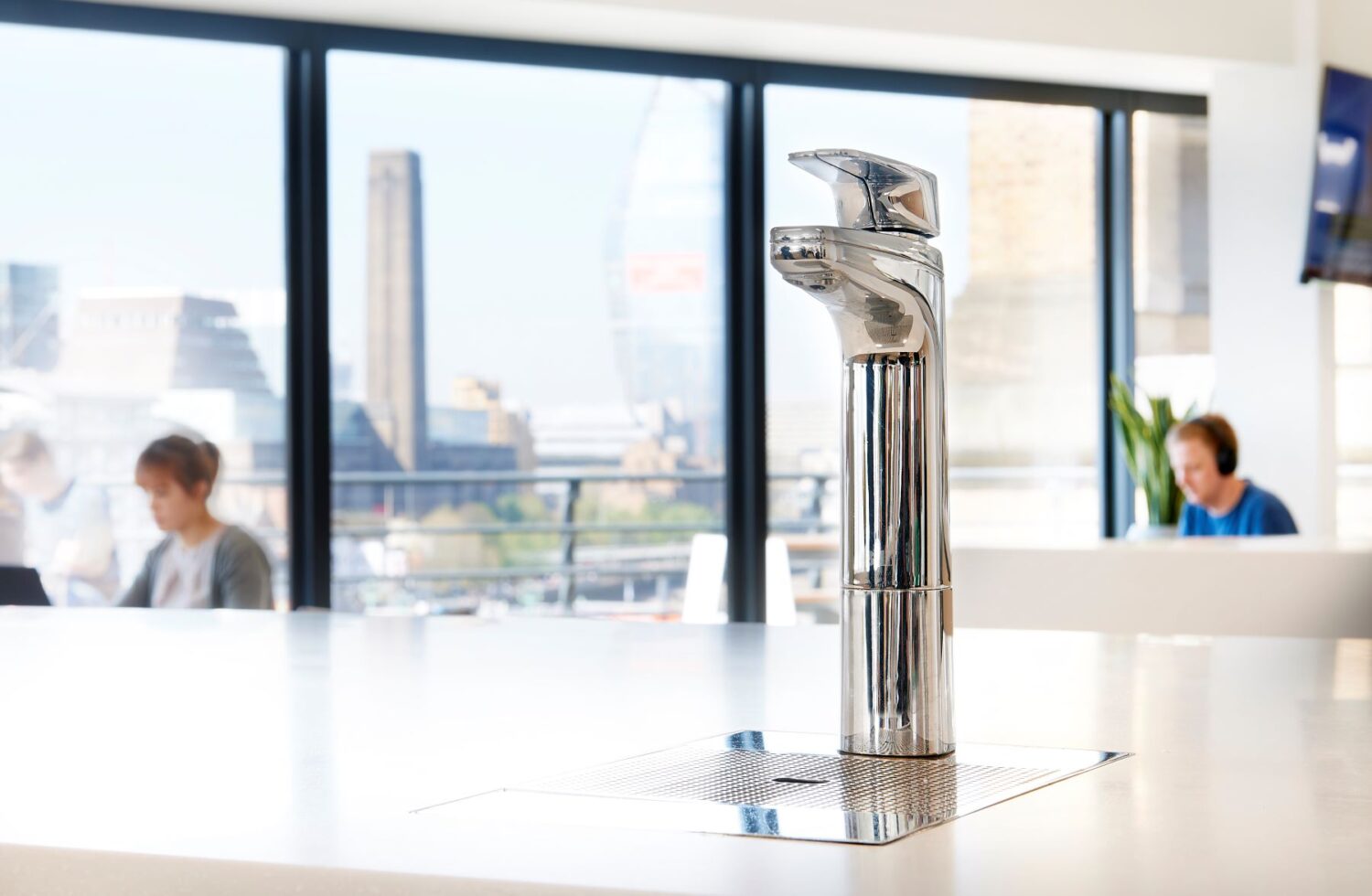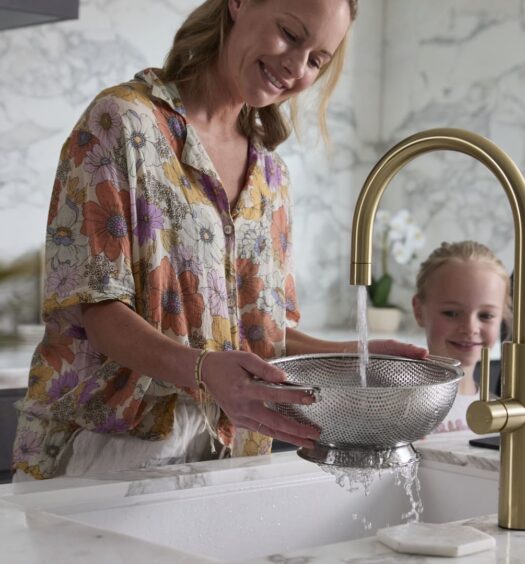Designing a home is about more than just style – it’s also about safeguarding your family’s health. With rising awareness of harmful contaminants such as “forever chemicals” like PFAS, lead, and BPA contaminating our drinking water, installing a high-quality, reputably manufactured water filter tap is a must-have feature in modern custom homes. These innovative taps offer a range of features to help protect your family’s health now and for generations to come.
These man-made chemicals, present in everyday items like non-stick cookware, waterproof clothing, cosmetics, carpet, and even food packaging, have proven resilient to breakdown in the environment and the human body. Alarmingly, PFAS exposure isn’t limited to a single lifetime – it has been linked to transgenerational health effects, meaning our choices today could impact not just ourselves, but our children and grandchildren.
Contaminated water supplies have been identified worldwide including Australia, in regions where industrial waste or firefighting foams have leached PFAS into water. Understanding this makes it critical to consider the health and purity of the water we drink daily.
A recent University of New South Wales study highlighted Australia as a hotspot for PFAS contamination in surface and groundwater. While government regulations are catching up, consumers need immediate solutions to ensure their drinking water is safe. To tackle this pressing issue, the Australian government is introducing stricter regulations to limit the use of PFAS, with particular focus on the extensively studied chemicals perfluorooctane sulfonic acid (PFOS) and perfluorooctanoic acid (PFOA). This whitepaper underscores the critical need to understand the risks posed by PFAS and advocates for proactive strategies to protect water resources and ensure public health.

PFAS are a group of synthetic chemicals used for their ability to resist heat, oil, stains, and water. Despite their utility, PFAS are persistent and bioaccumulative, meaning they linger in ecosystems and build up in living organisms. Research has connected PFAS exposure to a variety of health issues, including Studies have linked PFAS exposure to serious health issues, including cancer, immune system and hormonal disruption, and developmental problems in children.
The long-term effects of PFAS exposure extend beyond the individuals directly exposed. Studies indicate that PFAS can cross the placental barrier, affecting fetal development. Furthermore, evidence suggests that exposure to PFAS in one generation may lead to health challenges in subsequent ones, including altered immune responses and developmental delays in grandchildren. This underscores the urgency of minimizing exposure now to safeguard future generations.
Water systems have long grappled with issues related to the materials used in their construction. Lead poisoning from pipes and tapware is a well-documented problem, with recent legislation tightening restrictions on allowable lead content. Similarly, the presence of bisphenol A (BPA), a chemical used in plastics, has raised alarms due to its links to endocrine disruption, infertility, and cancer.
Chromium, often used for its anti-corrosion properties, also poses risks when hexavalent chromium is employed. This form of chromium has been associated with respiratory issues, stomach cancer, and other health problems.
Environmental impact is another critical concern in drinking water system design. Many traditional systems still rely on refrigerants with high global warming potential. However, Billi has adopted R290 refrigerant, a climate-friendly alternative with negligible global warming potential. This not only reduces the environmental footprint but also improves energy efficiency, making it a sustainable choice for modern homes.
Billi’s commitment to sustainability extends beyond refrigerants. The company’s Environmental Product Declarations (EPD) and certifications from Global GreenTag highlight its dedication to transparency and environmental stewardship. By embracing a repair-over-replace ethos, Billi ensures that their products offer longevity, further reducing waste.
Billi has risen to these challenges by using materials like silicone tubing and stainless-steel tanks to eliminate lead leaching, adopting trivalent chromium plating as a safer alternative, and ensuring their products are BPA-free. These measures demonstrate Billi’s commitment to leading the industry in health-conscious design.
With independently verified certifications and compliance with Australian Standards, Billi has positioned itself as a leader in the drinking water system market.
Choosing filtered water systems, like a Billi Tap, is an effective way to reduce PFAS exposure. Billi Taps are designed to provide boiling, chilled, sparkling, and filtered water while removing harmful contaminants from the water supply.
Billi is once again a sponsor of Architecture & Design Sustainability Awards, proudly supporting the inaugural Single Dwelling (New) category. This category recognises the smart design and construction of single-residential buildings, that prioritise sustainability and innovation within a small footprint. By rewarding sustainable design principles, we can create buildings that are ergonomic, energy-efficient, environmentally friendly, and enhance the quality of life for occupants.
Their commitment to sustainability and sponsorship is aligned with space-saving product solutions for smaller dwellings, contributing to a more sustainable future.
When it comes to water, every decision we make has ripple effects, families can drastically reduce exposure to harmful chemicals such as PFAS. This not only protects your immediate health but contributes to a healthier start for your children and grandchildren.
The choices we make today affects the future and we need to ensure that the water we drink today doesn’t harm the lives of tomorrow. We can play a critical role in breaking the chain of PFAS exposure, safeguarding not only our well-being but that of generations to come.

A PO Box 464, Reservoir VIC 3073
P 1800 812 321
E info@billi.com.au
W billi.com.au




